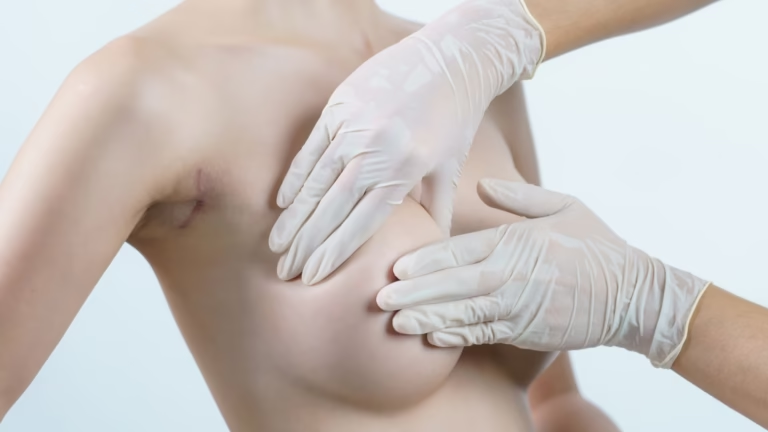
How to make a liquid diet before bariatric surgery, what should we pay attention to while making the liquid diet, let’s examine together. Preparing for bariatric surgery is a life-changing journey, and proper preparation plays a vital role in ensuring a successful outcome. One of the most important steps before surgery is following a 2-week liquid diet. This specialized diet not only kickstarts weight loss but also reduces the size of the liver, making the surgical procedure safer and more effective. In this comprehensive guide, we’ll walk you through everything you need to know about the pre-surgery liquid diet, including recommended liquids, protein shakes, and supplements, while ensuring your nutritional needs are met.
Why Is a Liquid Diet Important Before Bariatric Surgery?
Undergoing bariatric surgery requires more than just showing up on the scheduled date. Doctors recommend starting a liquid diet 14 days before surgery for several reasons:
1.Liver Size Reduction:
The liver is positioned over the stomach. A high-calorie, high-fat diet can lead to liver enlargement, which may complicate the surgery. Following a strict liquid diet helps reduce liver fat and size, making it easier for the surgeon to access the stomach and perform the procedure efficiently.
2.Initial Weight Loss:
The liquid diet helps patients begin their weight loss journey before surgery. This early success can boost motivation and confidence, setting the stage for post-operative lifestyle changes.
3.Nutritional Preparation:
Including high-protein shakes and essential supplements ensures that your body is well-nourished before surgery. Adequate protein intake supports muscle mass, immune function, and healing post-surgery.
What Should You Include in Your Pre-Surgery Liquid Diet?
The liquid diet is designed to be low in calories, carbohydrates, and fats while being high in protein. Below is a detailed breakdown of what you can consume during this period:
Clear Liquids
Clear liquids are essential for hydration and provide minimal calories. These liquids should not contain any sugar or carbonation. Here’s what is allowed:
•Water (plain or flavored, but unsweetened)
•Diluted juices (fruit or vegetable, without added sugar)
•Broth-based soups (chicken, beef, or vegetable)
•Gatorade or generic electrolyte drinks (sugar-free options)
•Flavored water (sugar-free)
•Unsweetened tea (herbal or regular)
•Coffee (without cream or sugar)
•Crystal Light (or similar zero-calorie drink mixes)
•Sugar-free beverages
•Jello (sugar-free)
•Popsicles (sugar-free)
Protein Shakes
Protein is a cornerstone of the pre-surgery liquid diet. It helps preserve muscle mass and prepares your body for faster recovery after surgery. Aim for 60-80 grams of protein daily, primarily from protein shakes. Here are some suitable options:
•EAS AdvantEdge Carb Control
•Slim Fast Low Carb
•Atkins Shake
•Boost Glucose Control
•Carnation Instant Breakfast (no sugar added)
You may choose any high-protein, low-carb shake that you prefer. However, keep in mind that after surgery, the types of protein shakes allowed will become more limited, so be sure to consult your healthcare provider post-surgery for specific recommendations.
Full Liquids
In addition to clear liquids, full liquids provide more variety and help you feel fuller during the 2-week period. Full liquids are typically thicker but still easy to digest. Here’s what you can include:
•Hot cereals (oatmeal, grits, or cream of wheat – ensure they are thinned out with extra liquid)
•Creamed soups (blended and strained, without chunks)
•Yogurt (plain or sugar-free, avoid those with fruit chunks)
•Pudding (sugar-free)
•Milk (skim or low-fat)
•Custard (sugar-free)
•Sherbet (low-fat and sugar-free)
Supplements to Include Before Surgery
Since you’ll be consuming a restricted diet, supplements are crucial to meet your basic nutrient needs. Initially, chewable supplements are recommended for better digestion and absorption. Here’s what you should consider adding:
Multivitamins
•Centrum Chewables
•One-A-Day Maximum
•Flinstones Complete
•Chewable Mega Teen Multivitamin (GNC)
Calcium with Vitamin D
•Citracal Creamy Bites
•Twin Labs Chewable Calcium Citrate
•Bluebonnet Liquid Calcium Citrate
•Solaray Calcium Citrate Wafers
•Bariatric Advantage Chewy Bites Citrate
These supplements act as a safety net to ensure that your body receives adequate vitamins and minerals during the liquid diet phase.
Tips for a Successful Liquid Diet
1.Stay Hydrated:
Drink plenty of water throughout the day. Staying hydrated is crucial for overall health and helps curb hunger.
2.Avoid Carbonated Beverages:
Carbonation can cause bloating and discomfort, both before and after surgery. Stick to flat liquids.
3.Monitor Protein Intake:
Keep track of your daily protein intake to ensure you’re meeting the recommended 60-80 grams per day. This will help preserve muscle mass and support healing.
4.Plan Your Meals:
Having a daily meal plan can help you stay on track and avoid deviations. Prepare your protein shakes, clear liquids, and full liquids in advance to make it easier to stick to the diet.
5.Follow Your Doctor’s Instructions:
Always follow the specific dietary guidelines provided by your bariatric surgeon or dietitian. They may have additional recommendations tailored to your individual needs.
Conclusion: Your Path to a Successful Bariatric Surgery
Starting a liquid diet before bariatric surgery is a critical step in ensuring the safety and success of your procedure. By reducing liver size, promoting initial weight loss, and ensuring adequate nutrition, this diet prepares your body for surgery and sets you up for long-term success. Remember to include high-protein shakes, clear liquids, full liquids, and essential supplements to meet your nutritional needs.
Always consult your healthcare team before making any dietary changes, and don’t hesitate to reach out for support during this important pre-surgery phase.
Newsletter Updates
Enter your email address below and subscribe to our newsletter








